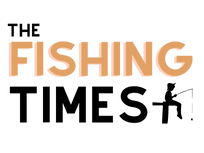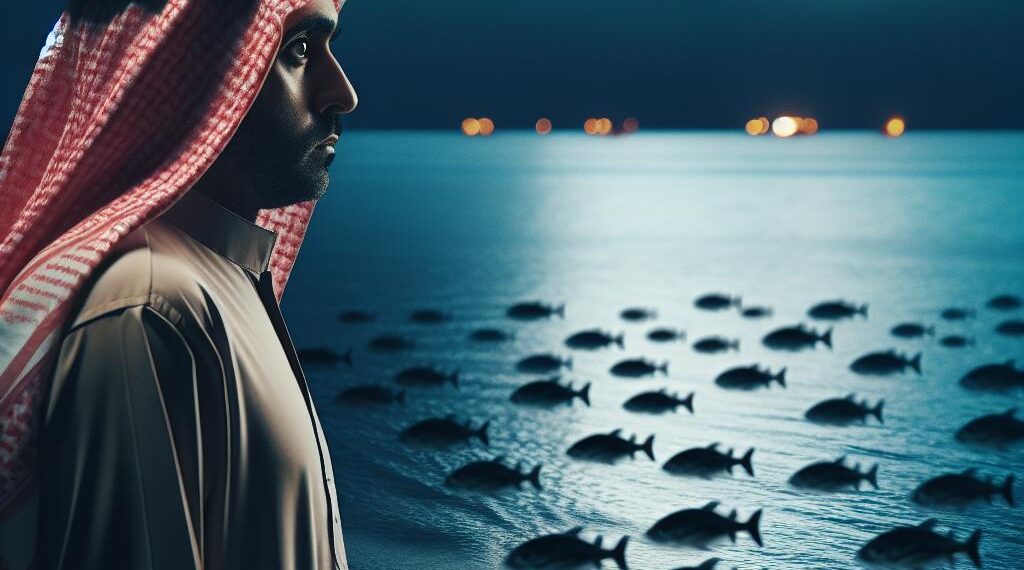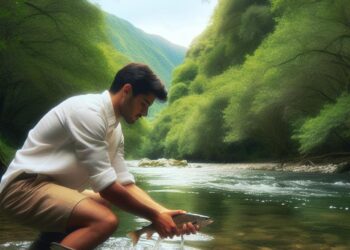Picture this: you’re out on a boat, the sun slowly rising, casting golden hues across the water. It’s the perfect fishing day, yet your line stays slack, the fish mysteriously absent. Surprised? You’re not alone. Overfishing has steadily depleted fish populations, impacting not only eager anglers but entire ocean ecosystems. It might seem distant, but this issue resonates with both novice and seasoned fishers. Why? Because a healthy ocean means better catches and more vibrant fishing adventures. In this blog, we’ll uncover how understanding and mitigating overfishing can enhance your fishing skills and contribute to ocean health—our shared responsibility and reward.
How Does Overfishing Affect Ocean Ecosystems?
Overfishing refers to catching too many fish too quickly, depleting fish populations faster than they can reproduce. It’s been a longstanding issue in fishing culture due to high demand for seafood and improved fishing techniques. This imbalance harms ocean ecosystems, causing species decline and threatening the marine food web. For anglers, understanding overfishing is crucial as it highlights the importance of sustainable practices. Knowing how to protect fish populations not only ensures future fishing opportunities but also preserves the natural environment. By being mindful of overfishing, anglers contribute to healthier oceans, making fishing experiences more rewarding and impactful in the long run.Why Overfishing Matters to Ocean Health
Exploring the impact of overfishing on ocean ecosystems not only enriches your fishing knowledge but also enhances your overall fishing experience. Here’s why understanding this topic is crucial to your fishing lifestyle:- Conservation Awareness: Recognising the effects of overfishing allows anglers to make informed choices, promoting sustainable fishing practices that protect marine life and ensure healthy fish populations for future generations. By being an advocate for conservation, you contribute positively to the environment.
- Improved Techniques: Knowing which species are at risk helps you refine your techniques. You can target abundant species rather than those struggling to survive, making your fishing trips more rewarding and aligned with conservation efforts.
- Better Fishing Spots: Acknowledging overfishing’s impact helps identify areas where fish are thriving due to effective conservation measures. This knowledge guides you toward better fishing locations, saving you time while increasing your chances for successful catches.
- Enhanced Safety: With overfishing affecting food chains and marine ecosystems, being aware fosters an understanding of safe fishing practices, ensuring both your safety and that of the ecosystems you’re engaging with.
- Involvement in Solutions: Understanding the issue empowers you to participate in conservation initiatives, making you part of a global solution. It fosters a sense of community among anglers dedicated to preserving marine biodiversity.
Understanding Overfishing’s Impact on Ocean Ecosystems: Simple Steps Explained
1. Educate Yourself: Dive into the topic by reading about the consequences of overfishing on ocean ecosystems. Learn how it disrupts marine life, reduces biodiversity, and affects local communities. Avoid the pitfall of skimming; take the time to understand the breadth of the problem for a genuine connection.2. Choose Sustainable Practices: When fishing, opt for techniques that preserve fish populations. Use circle hooks and avoid bycatch-heavy methods. A common mistake is relying on outdated practices, so consistently update your knowledge about environmentally friendly techniques.
3. Advocate and Support: Discuss overfishing’s impact with fellow anglers, spreading awareness. Support organizations working to protect the oceans. Still, don’t overdo it—keep your conversations engaging and informative, not preachy or overwhelming.
4. Lead by Example: Practise what you preach. When out fishing, keep an eye on local regulations and respect size limits. Mistakes happen, but remain informed about changes in laws to avoid unknowingly contributing to the problem.
Eco-Focused Fishing Gear for Sustainable Angling
Thinking about fishing trips? There’s a world you’re stepping into where technique, gear, and a dash of travel sense can transform your ordinary trip into an extraordinary experience. Believe it or not, fishing is more than dropping a line. It’s an art, folks! Whether you’re new to angling or simply looking to up your game, this guide is your one-stop shop for becoming an ace angler while respecting our planet’s waters. Rest assured, proper guidance won’t lead to overfishing, which is vital because our planet’s aquatic ecosystems need fish to thrive. There’s a method to every successful outing—like the Dos and the Dont’s—and things that’ll simply blow your mind. So, ready to dive into the world of fishing? Let’s get casting! First off, it’s essential to understand different angling techniques. If you’re starting, try your hand at freshwater fishing. It’s the most accessible type for beginners and doesn’t require fancy gear—just a simple rod, basic reel, and some bait. Easy peasy, right? Once you get the hang of it, have a go at fly fishing. It’s a bit more challenging but undeniably rewarding with its unique casting techniques and elegant form. Plus, you’ll find it as relaxing as a daydream by the riverbank. Brilliant, isn’t it?Now, here’s a cheeky little tip: never underestimate the power of local knowledge. Speaking to fellow anglers or even participating in fishing clubs can significantly boost your confidence. They might spill the beans on secret spots or offer courses on mastering specific techniques. So, what you’re waiting for? Go on, have a chinwag with other enthusiasts to nurture your growing fishing prowess.
Choosing the right gear is equally critical. Gone are the days when any old rod would do. With technology on our side, we’ve got options aplenty! Starter kits, which include a rod, a set of lures, and even a mini-tackle box, are a great way to hit the ground running. As you gain experience, look into specialised gear like carbon fibre rods or high-end reels to improve your efficiency in the water. It’s an investment in your joy after all.
Remember, sustainable fishing is key. Overfishing is a threat—no doubt about that. It depletes fish stocks and harms ocean ecosystems terribly. The imbalance can lead to the decline of species, which in turn affects the biodiversity of the whole ecosystem. Choosing sustainable fishing gear, like circle hooks that reduce bycatch, not only benefits the oceans but ensures that our children can enjoy angling too. Quite heartening to know, eh?
Preparing for your fishing trips should never be a last-minute scramble. A little bit of planning goes a long way. Check the weather, ensure your kit is ready, and don’t forget your fishing licence. Overpreparing, in this case, means underwhelming disappointments! Looking for travel tips? Consider regions renowned for fishing, like Scotland’s River Dee or England’s Lake District. You’ll find both scenic landscapes and ripe fishing opportunities. Perfect for a weekend getaway, don’t you think?
Packing with precision will also enhance your adventure. Don’t neglect essential gear like a sturdy tackle box or high-quality fishing line. Trust me, there’s nothing more annoying than a snapped line right at a pivotal moment. If possible, bring along a portable cooler to keep your catch fresh. Whipping up a fresh meal while embracing nature’s tranquillity could truly be your cherry on top.
Motivation is key in making angling a hobby rather than a chore. Set realistic goals and celebrate your small victories. Caught your first fish? That’s cause for a party! Remember, it’s not always about the catch but the journey and the lessons learned along the way. Nature has a way of teaching patience, respect, and quite the sense of humour, so embrace the process.
Incorporating responsible fishing habits is another core practice. Always abide by catch-and-release guidelines when applicable, and don’t take more than you need. It’s about maintaining a balance, ensuring these waters stay bountiful for current and future generations. It’ll give you peace of mind and the serenity to marvel at the natural wonders around you.
Thinking about replenishing your gear or trying out that fancy new reel? You’ve come to the right section, mate! Here’s a comparison table of the standout gear which keeps overfishing in check, perfect for those concerned about our oceans:
| Gear Type | Description | Price Range | Skill Level |
|---|---|---|---|
| Circle Hooks | Reduces bycatch and increases survival rate of released fish | £4-£15 per pack | All levels |
| Barbless Hooks | Easy release, causing less harm to fish | £3-£10 per pack | Intermediate to Expert |
| Biodegradable Lures | Eco-friendly, breaks down without harming environment | £7-£20 each | Beginner |
| Lead-Free Weights | Avoids lead pollution, safer for aquatic life | £5-£15 per pack | All levels |
For those special fishing trips, investing in circle hooks is highly recommended. They offer a significant advantage by reducing bycatch, making them a top choice for environmentally conscious anglers. Fishing should be a reflective and enjoyable experience, not just about the rush of adrenaline when you snag the elusive “big one”. Let these tips guide your journey, developing skills that enrich not only your love for angling but also your understanding of maintaining life in our waters. Pop on your favourite hat, grab the tackle box, and make some shimmering ripples on the surface. Good luck, and tight lines!
Real-Life Insights: Overfishing’s Impact on Ocean Ecosystems
Fishing is a dance with nature, a harmony of preparation, technique, and patience. You see, understanding how to catch the “big one” is as much about feel as it is about knowledge. Ever tried the jigging technique? It’s like a rhythmic exercise, moving your lure in an enticing manner, attracting fish with irresistible motion. This method is perfect for catching predatory fish like bass and pike. Jigging requires focus and timing, offering a hands-on way to connect with the water’s flow.But wait! Equipment matters too. Can’t catch a fish with bare hands, can you? A good rod and reel are essential, but don’t break the bank. Check out brands known for durability and comfort. You want something that feels good in your hand and won’t snap under pressure. Trust me, having the right gear will make your fishing trips much more enjoyable.
Now let’s travel a bit, shall we? Picture yourself on a serene lake at dawn, mist rising gently. Travelling to new spots can reignite your passion for fishing. Yet, always be mindful of local guidelines, because respecting these keeps fishing sustainable. Overfishing impacts ecosystems, depleting populations that struggle to regenerate, leading to scarce catches and a poorer underwater world. It’s crucial to fish responsibly and smartly, ensuring future generations enjoy the same bountiful waters.
So, how do you stay motivated? The key is to set goals. Maybe aim to catch a new species each trip or try a different technique monthly. It’s about learning and growing, not just reeling in fish. Share experiences with fellow anglers. It’s amazing what you learn over a shared tale or two.
In the end, enjoyment is all about attitude. Fishing teaches patience, resilience, and respect for nature. Forget the worries of the day, and focus on casting that line into the water. Remember, it’s not just about the catch, but the experience. Let the water’s ebb and flow remind you of life’s simple pleasures. Keep angling!
A few years back, I met a seasoned angler named Tom on a coastal fishing trip. A true storyteller, he shared tales of his younger days when coastal waters teemed with abundant fish. Then, he painted a different picture—a quieter ocean. Tom explained how years of overfishing had lessened those thriving schools of fish. “It’s like the magic in these waters is fading,” he said. The impact was visible; fewer fish meant fewer jobs for local communities relying on the sea, marinas emptied, and the vibrant underwater world was now a quieter, less colourful space. Tom instilled in me a vital lesson: we must embrace sustainable fishing, respecting the ocean so it might continue to offer its bounty. His stories made me realise the importance of our choices, urging me to advocate for mindful fishing practices. Sometimes, what we don’t immediately see still touches us deeply, reminding us to care for our world.
Conserving Ocean Ecosystems: Combatting Overfishing’s Impact
Fancy a day out on the water, rod in hand, surrounded by nature? Fishing offers a splendid escape from the hustle and bustle, but it’s also crucial to remember our environment. Overfishing has put great strain on ocean ecosystems, adversely affecting fish populations, water quality, and marine biodiversity. Such exploitation leads to depleted fish stocks and disrupts marine habitats, making ethical fishing essential for sustainability. Here are some tips to fish responsibly:- Learn local fishing regulations and stick to the allowed quotas to help maintain healthy fish populations.
- Target abundant species rather than those that are overfished or endangered.
- Practise catch and release with care, using barbless hooks to ensure fish survival.
- Choose eco-friendly tackle, like lead-free weights, to keep toxic materials out of our waters.
- Leave no trace: clean up after yourself to maintain the natural beauty of fishing spots.
- Advocate for and support conservation organisations that work to protect marine life and habitats.








